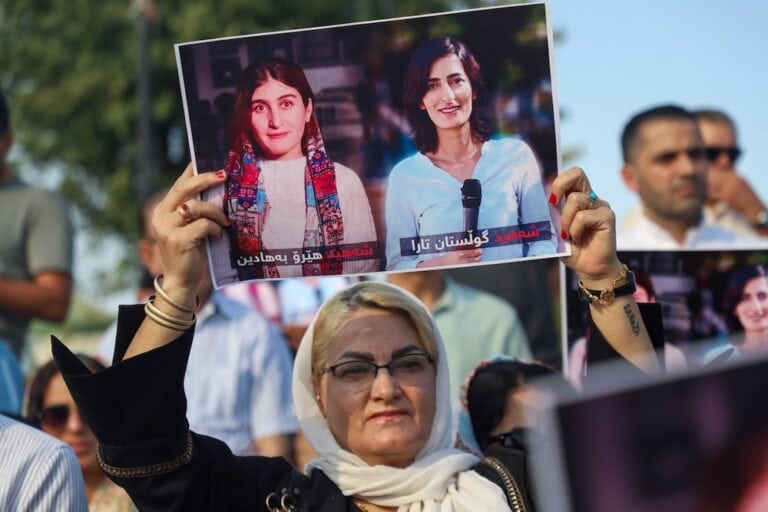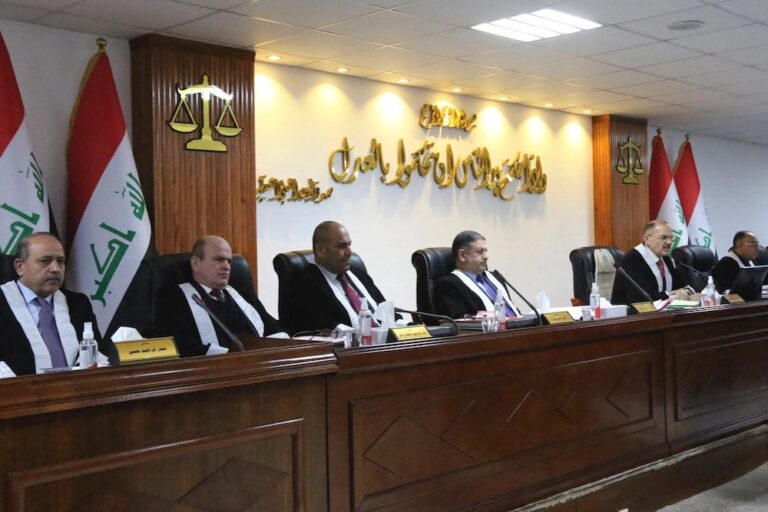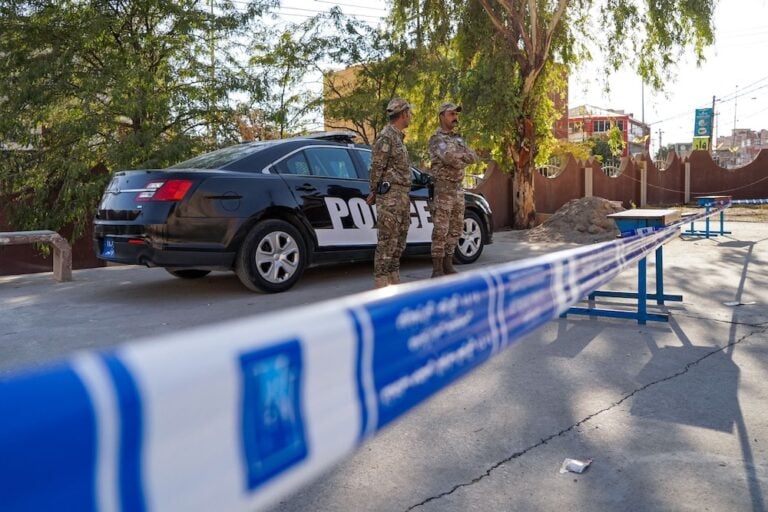(Freedom House/IFEX) – The following is a 4 August 2004 Freedom House press release: VIOLENCE MAIN OBSTACLE TO FREE MEDIA IN IRAQ NEW YORK, AUGUST 4, 2004 — While independent media in Iraq have enjoyed unprecedented growth since Saddam Hussein’s downfall, ongoing violence and a largely unregulated media environment are blocking the path toward greater […]
(Freedom House/IFEX) – The following is a 4 August 2004 Freedom House press release:
VIOLENCE MAIN OBSTACLE TO FREE MEDIA IN IRAQ
NEW YORK, AUGUST 4, 2004 — While independent media in Iraq have enjoyed unprecedented growth since Saddam Hussein’s downfall, ongoing violence and a largely unregulated media environment are blocking the path toward greater press freedom, according to a Freedom House report issued today.
The report, “Liberated and Occupied Iraq: New Beginnings and Challenges for Press Freedom,” examines how the explosive growth of independent newspapers, satellite television, talk radio, and Internet access since April 2003 has allowed for the expression of a diverse array of views previously crushed by Saddam Hussein’s government.
Iraq now features roughly 200 newspapers and approximately 90 television and radio stations. Numerous Internet cafes have also sprung up throughout the country. However, the overall lack of security in Iraq is preventing the establishment of a truly free media environment, the report says.
“Iraq’s media today, while clearly reveling in its new found freedom, can’t fully serve the Iraqi public in the midst of instability and terrorist violence,” said Freedom House Executive Director Jennifer Windsor.
Nearly two-dozen journalists have been killed over the last year, some in terrorist attacks and others during armed operations by coalition forces.
The report also notes that some Iraqi media outlets are run by political groups that sometimes fail to adhere to objective and non-partisan reporting standards. Many journalists are also poorly trained, with some reporting unsubstantiated rumors and conspiracy theories. Such reporting can spark further violence, the study notes.
The report suggests that Iraqi authorities should pay special attention to the need for diverse and pluralistic media and should assist in developing a professional class of journalists.
The study, written by Brian Katulis, a public opinion researcher who works on democratic development projects in the Middle East for Freedom House, will be featured in the forthcoming Freedom House global survey of media freedom, Freedom of the Press 2004. While Iraq is still rated “Not Free” in the survey, it did show impressive numerical gains, as noted in the survey’s rating system.
The report also examines the many challenges that faced the U.S.-led Coalition Provisional Authority (CPA) in regulating Iraq’s burgeoning media.
In June 2003, the CPA issued Order 14, which prohibited media activities aimed at inciting violence, civil disorder, rioting, or action against Coalition forces or the CPA. The order also gave Ambassador Paul Bremmer, head of the CPA, sole authority to close media organizations. The March 2004 closing of Al-Hawza, a weekly newspaper published by the Shiite cleric Muqtada Al-Sadr, on grounds that it incited violence, led to weeks of violence between Shiite militias and Coalition forces. The interim Iraqi government has since authorized the re-opening of Al-Hawza.
“Continuing violence poses the greatest short-term threat to the work of journalists in the country. In the long-term, political stability and the ambiguous legal framework will need to be resolved in order for Iraq’s media to truly function freely,” the report concludes.
The report is available online at:
http://www.freedomhouse.org/research/specreports/iraqmedia.pdf
The Freedom House’s survey, Freedom of the Press 2004 is available at:
http://www.freedomhouse.org/research/pressurvey.htm


